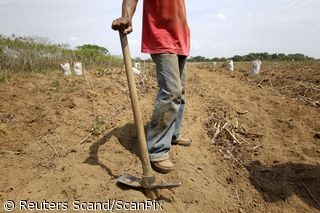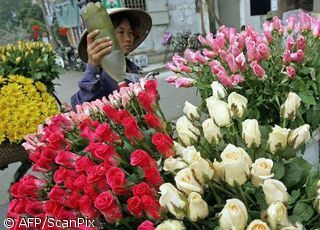Many more workers have arrived in Britain from Eastern Europe since enlargement of the EU in May than the Government predicted, figures showed yesterday
Published:
11 November 2004 y., Thursday
Many more workers have arrived in Britain from Eastern Europe since enlargement of the EU in May than the Government predicted, figures showed yesterday.
Nearly 91,000 people from the eight former Soviet-bloc states that joined the EU registered to work in the first five months after the expansion. The Tories said many others may have taken on a job without registering.
In the run-up to enlargement, ministers dismissed suggestions of a major influx of migrant workers and regularly cited an official estimate of between 5,000 and 13,000 additional arrivals per year.
The latest figures are seven times that forecast in under half the period. However, David Blunkett, the Home Secretary, said they showed that the worker registration scheme, set up to dampen controversy over enlargement, was operating effectively.
Normally, EU citizens can travel freely to settle and work in other member states. But the 15 existing members were allowed to operate controls on migration from the new states for up to seven years.
While most governments imposed restrictions, Britain decided not to. The Government said Britain needed more workers but it faced accusations of failing to protect the country's borders. It decided to establish a registration scheme to discourage new arrivals from working in the black market.
The Home Office said 45 per cent of those who had registered were already in the country. Mr Blunkett said the new arrivals, mostly aged between 24 and 34, had helped to fill job vacancies in hospitality and agriculture, and had legalised some who had not been paying tax.
Šaltinis:
news.telegraph.co.uk
Copying, publishing, announcing any information from the News.lt portal without written permission of News.lt editorial office is prohibited.
The most popular articles
 EU animal welfare rules must be more rigorously enforced, with more inspections and effective penalties, said the Agriculture Committee on Wednesday.
more »
EU animal welfare rules must be more rigorously enforced, with more inspections and effective penalties, said the Agriculture Committee on Wednesday.
more »
 Fifty-three year old Rasima collects dirt everyday from a paddy field in Indonesia’s east Java province, turning it into a snack made entirely from soil, called "ampo."
more »
Fifty-three year old Rasima collects dirt everyday from a paddy field in Indonesia’s east Java province, turning it into a snack made entirely from soil, called "ampo."
more »
 At the moment an Argentinian working for a French company in Spain can't travel to France for a meeting on his long-term visa.
more »
At the moment an Argentinian working for a French company in Spain can't travel to France for a meeting on his long-term visa.
more »
 An EU-wide strategy is needed to combat violence against women, which must be recognised as a crime, said participants in a European Parliament public hearing with national parliaments and civil society representatives, held on Tuesday to mark International Women's Day.
more »
An EU-wide strategy is needed to combat violence against women, which must be recognised as a crime, said participants in a European Parliament public hearing with national parliaments and civil society representatives, held on Tuesday to mark International Women's Day.
more »
 You know its Tet in Vietnam when Peach and Kumquat orange trees decorate every home, shop and public establishment.
more »
You know its Tet in Vietnam when Peach and Kumquat orange trees decorate every home, shop and public establishment.
more »
 A surveyor has set up his tripod and instruments under a hot tropical sun to measure plots of land in a village where the Dac Kray minority community were settled four years ago.
more »
A surveyor has set up his tripod and instruments under a hot tropical sun to measure plots of land in a village where the Dac Kray minority community were settled four years ago.
more »
 Japanese men are answering the call of Valentine s Day a month late.
more »
Japanese men are answering the call of Valentine s Day a month late.
more »
 In three urgent resolutions adopted on Thursday, Parliament urges Hamas to release kidnapped Israeli soldier Gilad Shalit, deplores the escalating criminal violence in Mexico and calls on South Korea to scrap the death penalty.
more »
In three urgent resolutions adopted on Thursday, Parliament urges Hamas to release kidnapped Israeli soldier Gilad Shalit, deplores the escalating criminal violence in Mexico and calls on South Korea to scrap the death penalty.
more »
 The plight of Europe's 10 million Roma population will fall under the spotlight Tuesday afternoon when MEPs discuss an upcoming Roman summit.
more »
The plight of Europe's 10 million Roma population will fall under the spotlight Tuesday afternoon when MEPs discuss an upcoming Roman summit.
more »
 EU Employment and Social Affairs Ministers have today adopted a Directive to prevent injuries and infections to healthcare workers from sharp objects such as needle sticks – one of the most serious health and safety threats in European workplaces and estimated to cause 1 million injuries each year.
more »
EU Employment and Social Affairs Ministers have today adopted a Directive to prevent injuries and infections to healthcare workers from sharp objects such as needle sticks – one of the most serious health and safety threats in European workplaces and estimated to cause 1 million injuries each year.
more »